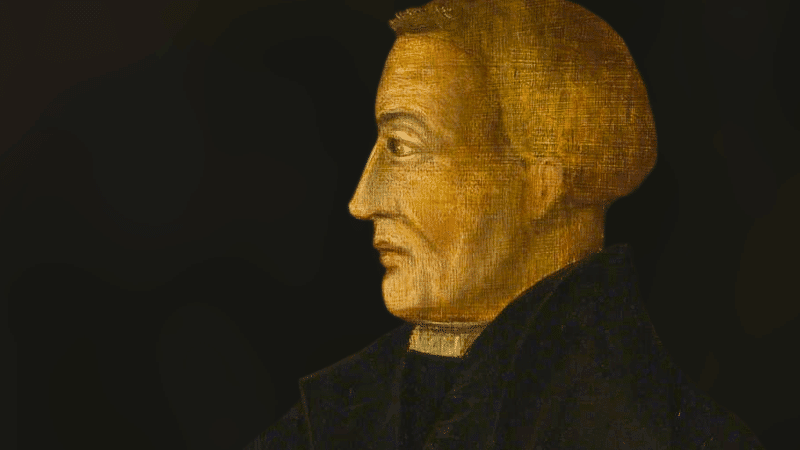Martin Bucer: Servant of God

Martin Bucer may not be well-known to Christians, but he deserves to be.
Pastor to John Calvin and friend of Thomas Cranmer, Bucer was one of the leading lights of the Protestant Reformation.
In the fourth of The Christian Institute’s Autumn Lecture 2017 series, Revd Dr Peter Naylor spoke out about Bucer’s impact.
Bucer was born in 1491 in Sélestat, in present northeast France, and became a Dominican monk aged 15.
But it was in 1518, after moving to Heidelberg and listening to Martin Luther, that Bucer was converted.
Gleams
He was present at The Heidelberg Disputation for Luther’s defence of his 95 theses.
He set out to take down what Luther said but it was so impacted, that it led to his conversion to Christianity.
As Swiss historian Jean-Henri Merle d’Aubigné put it: “He took with him paper, pens and ink, intending to take down what the doctor said, but while his hand was swiftly tracing Luther’s words, the finger of God in more indelible characters wrote on his heart the great truths that he heard.
“The first gleams of the doctrine of grace were diffused through his soul during this memorable hour. The Dominican was gained over to Christ.”
“the finger of God in more indelible characters wrote on his heart the great truths that he heard.”
Calvin and Cranmer
As a result, Bucer left Heidelberg. Penniless and newly married, he travelled to Strasbourg with his wife Elisabeth to find the city a battleground between papists and reformers.
In 1524, he was appointed as a pastor and swiftly recognised as the leader of the Reformation in Strasbourg.
Then for 25 years, he preached the Gospel, wrote prolifically and prayed profusely.
He went about reforming worship – removing altars, holy water and candles, but struggled over how best to celebrate the Lord’s Supper in keeping with Scripture.
“the finger of God in more indelible characters wrote on his heart the great truths that he heard.”
During this time, John Calvin lived with Bucer and his family for three years (1538-1541).
The great reformer testified to Bucer’s ‘singularly acute and remarkable clear judgment’ and his intense ‘desire to propagate the Gospel’.
But after Calvin returned to Geneva and amidst personal trials including imprisonment, the death of his wife, five of his children and the unravelling of the Reformation in Strasbourg – Bucer fled to England.
He settled in Cambridge in 1549 and benefited from the patronage of Edward VI.
He was also warmly received by Thomas Cranmer and it was this friendship that allowed Bucer to influence a revised version of the Book of Common Prayer.
Serving Christ
But his health deteriorated throughout his exile and he died in 1551 aged 59.
Assessing Bucer’s contribution 500 years on, Dr Naylor admitted that some see him essentially as a failure.
However, he then asked: “Is it failure to speak the truth and be rejected?”
If so, then Jeremiah (Jeremiah 43), Isaiah (Isaiah 6) and Paul (Acts 18) must all be classed as failures too.
“the finger of God in more indelible characters wrote on his heart the great truths that he heard.”
In closing, Dr Naylor argued that perhaps the best measure of Bucer’s success can be seen in the fact that in 1560, nine years after his death, Mary Tudor had Bucer tried posthumously for heresy; his body exhumed and burned in the marketplace of Cambridge.
The challenge for today, Dr Naylor concluded, is to ask ourselves: “Do we serve Christ with such determination that the enemies of Christ want to dig us up after we die and burn us?”
You can order a copy of Revd Dr Peter Naylor’s lecture on CD for £2.50. A special boxset of all this year’s lectures will also be available for £11.00, or on an MP3 CD for £4. To place an order, phone The Christian Institute office on 0191 281 5664 or email info@christian.org.uk
